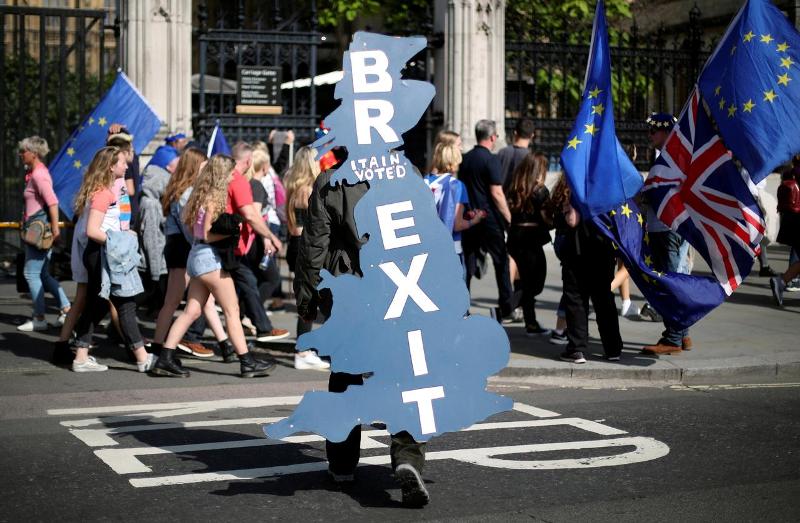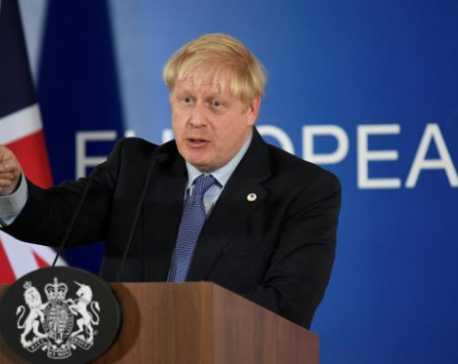
OR

More from Author
HELSINKI – The Supreme Court of the United Kingdom’s recent ruling that Prime Minister Boris Johnson acted unlawfully in seeking to suspend (or “prorogue”) the UK Parliament for five weeks to avoid debate of his plans for a “no-deal” Brexit underscores the centrality of the rule of law to democratic governance.
But while the rule of law prevails in the UK, concerns are arising elsewhere in the European Union. For the EU, protecting the rule of law is an obligation – one that its leaders must be adamant in upholding.
In his book The Origins of Political Order, the political scientist Francis Fukuyama argued that the rule of law is the most difficult pillar for a successful modern society to construct. Organizing government administration and staging elections to a legislative body are relatively easy, and only a small number of failed states have no functioning public administration or legislature. But in far more countries, the absence of the rule of law is the primary source of instability and political decay.
For the EU, the rule of law is of central importance, because the EU is not simply a joint economic undertaking (although, as the economist Hernando de Soto has emphasized, the rule of law is also a prerequisite for a developed market economy). The EU’s raison d’être, like that of its predecessors, is to guarantee peace between European countries and to safeguard human rights within its member states.
And the bloc is founded on common values enshrined in its treaties. The EU’s commitment to the rule of law, set out in Article 2 of the Treaty on European Union, is straightforward. It stands for legality, legal certainty, the prohibition of arbitrary exercise of authority, the separation of powers, and an effective and independent judiciary. Respect for the rule of law affects different layers of society in very practical ways: at the level of the Union, the nation-state, companies, and citizens.
Within the EU, the rule of law is not a political statement or unattainable moral ideal, but a principle that public officials and courts are responsible for upholding. Moreover, the system of responsibilities also works the other way: the EU has an obligation to ensure that the treaty-based rights are respected in its member states.
These rights and duties came into the spotlight in June, when the European Court of Justice ruled that the controversial reform of Poland’s Supreme Court violated EU law, as it undermined the principle of the irremovability of judges. After all, courts of law in a member state are also courts of law within the Union.
The independence of courts is fundamental to protect the fundamental rights to effective judicial protection and a fair trial. The legal system and the judiciary within any EU member state are thus required to meet European standards, and the ECJ is obliged to intervene if necessary.
But although EU member states tend to comply with ECJ rulings, this is only a partial solution to the problem of curtailing threats to the rule of law. Fortunately, the EU has several other tools at its disposal.
First, since 2014, EU member states have been conducting a dialogue to promote and safeguard the rule of law, including in the context of digitalization, migration, and media pluralism. Although these thematic discussions have been very fruitful in forging a basis for mutual understanding, the time is now ripe to strengthen the rule-of-law dialogue.
It should be more systematic and fact-based, a genuine annual stocktaking of the state of the rule of law in the EU. The new rule-of-law review cycle suggested by the European Commission should provide the necessary data. This approach will enable member states to promote a more positive, constructive, and ultimately unifying discussion.
Second, the European Parliament voted in September 2018 to launch a process under Article 7 of the EU Treaty to address alleged breaches of the rule of law in Hungary (a similar procedure concerning Poland had been initiated earlier).
This process requires the Council to assess whether the rule of law is being compromised in an EU country. If serious and persistent breaches of the rule of law are determined to have occurred, the Council has the power to suspend certain EU membership rights for the country in question.
Finally, protecting the rule of law is important for protecting the EU’s budget. For that reason, the Commission has proposed including rule-of-law safeguards in its next seven-year budget, or multiannual financial framework, running from 2021 to 2027. In particular, the EU may freeze its funds in a member state if rule-of-law deficiencies there put this money at risk. This new conditionality is intended to deter, not coerce. After all, the duty to protect the EU’s budget necessitates strict adherence to treaty-enshrined values.
Historically, some undemocratic societies with the rule of law have gradually developed into democracies. By contrast, societies without the rule of law experience democracy fleetingly, if at all. Political scientists Steven Levitsky and Daniel Ziblatt have described how authoritarian rulers strangle democracy by rewriting the rules and capturing the referees. In other words, they end the rule of law by twisting legislation and corrupting the judicial system. Democracy therefore dies, even if the façade of majoritarian power remains.
So, while constructing a system based on the rule of law is difficult, undermining it may be much easier, and might resemble Ernest Hemingway’s description of how someone goes bankrupt: “Gradually, then suddenly.” That is why the rule of law needs constant care everywhere, even in countries with long democratic traditions.
Maintaining the rule of law requires determination and foresight. Its defenders need to act early and decisively. And if one step is not enough, they must take another.
Tytti Tuppurainen is Minister for European Affairs of Finland
© 2019, Project Syndicate
www.project-syndicate.org
You May Like This

UK’s Johnson claims Brexit mandate as Tories secure majority
LONDON DEC 13: Prime Minister Boris Johnson’s Conservative Party has won a solid majority of seats in Britain’s Parliament — a... Read More...

Brexit day of reckoning: parliament to vote on Johnson's deal
LONDON, Oct 19: Prime Minister Boris Johnson puts his last-minute Brexit deal to a vote in an extraordinary sitting of... Read More...

Tony Blair warns UK Labour: Don't fall into election "elephant trap"
LONDON, Sept 2: British Prime Minister Boris Johnson is laying an election “elephant trap” for the opposition Labour Party that... Read More...

Just In
- Sajha Yatayat cancels CEO appointment process for lack of candidates
- Govt padlocks Nepal Scouts’ property illegally occupied by NC lawmaker Deepak Khadka
- FWEAN meets with President Paudel to solicit support for women entrepreneurship
- Koshi provincial assembly passes resolution motion calling for special session by majority votes
- Court extends detention of Dipesh Pun after his failure to submit bail amount
- G Motors unveils Skywell Premium Luxury EV SUV with 620 km range
- Speaker Ghimire administers oath of office and Secrecy to JSP lawmaker Khan
- In Pictures: Families of Nepalis in Russian Army begin hunger strike
















_20240419161455.jpg)

Leave A Comment